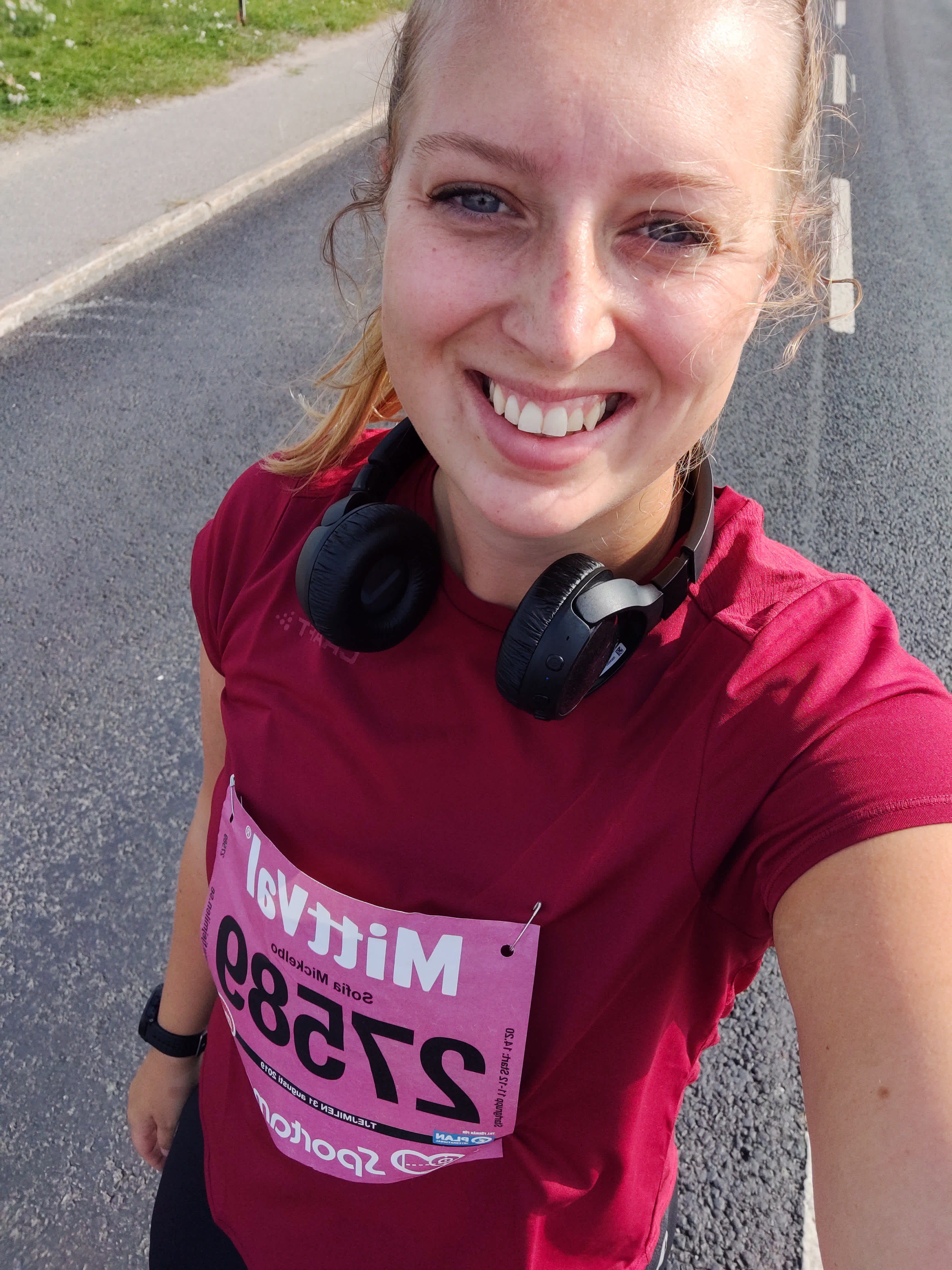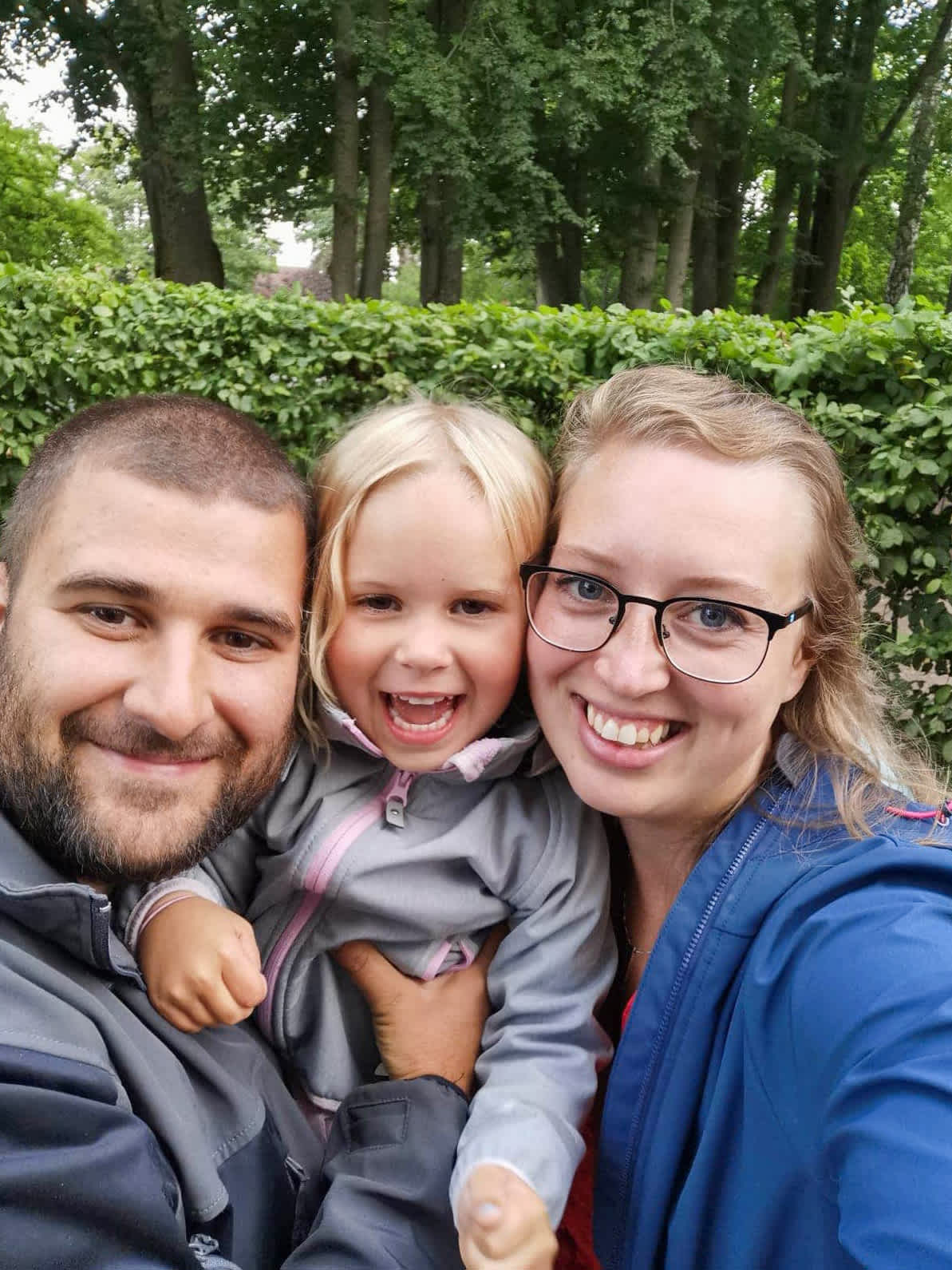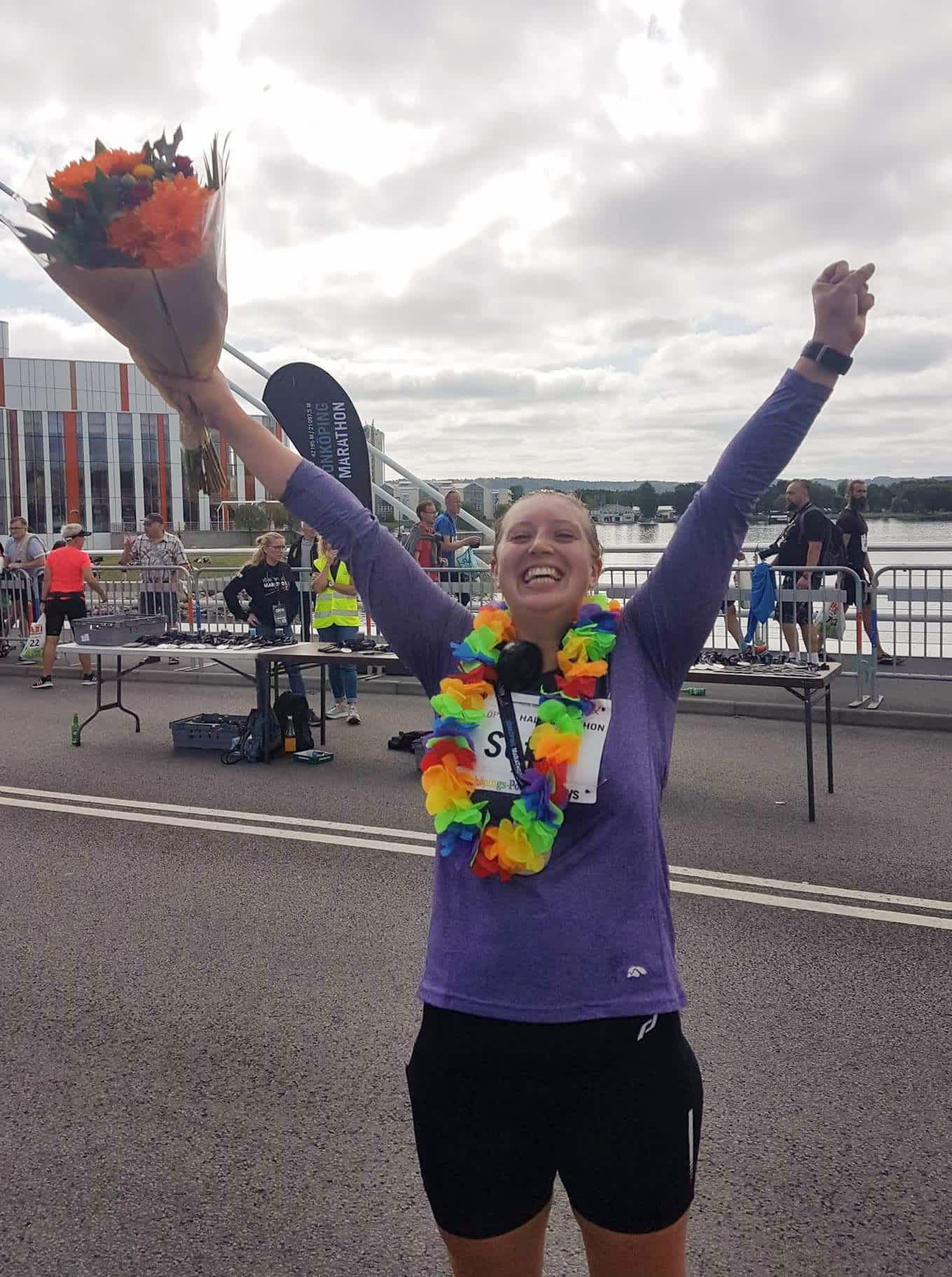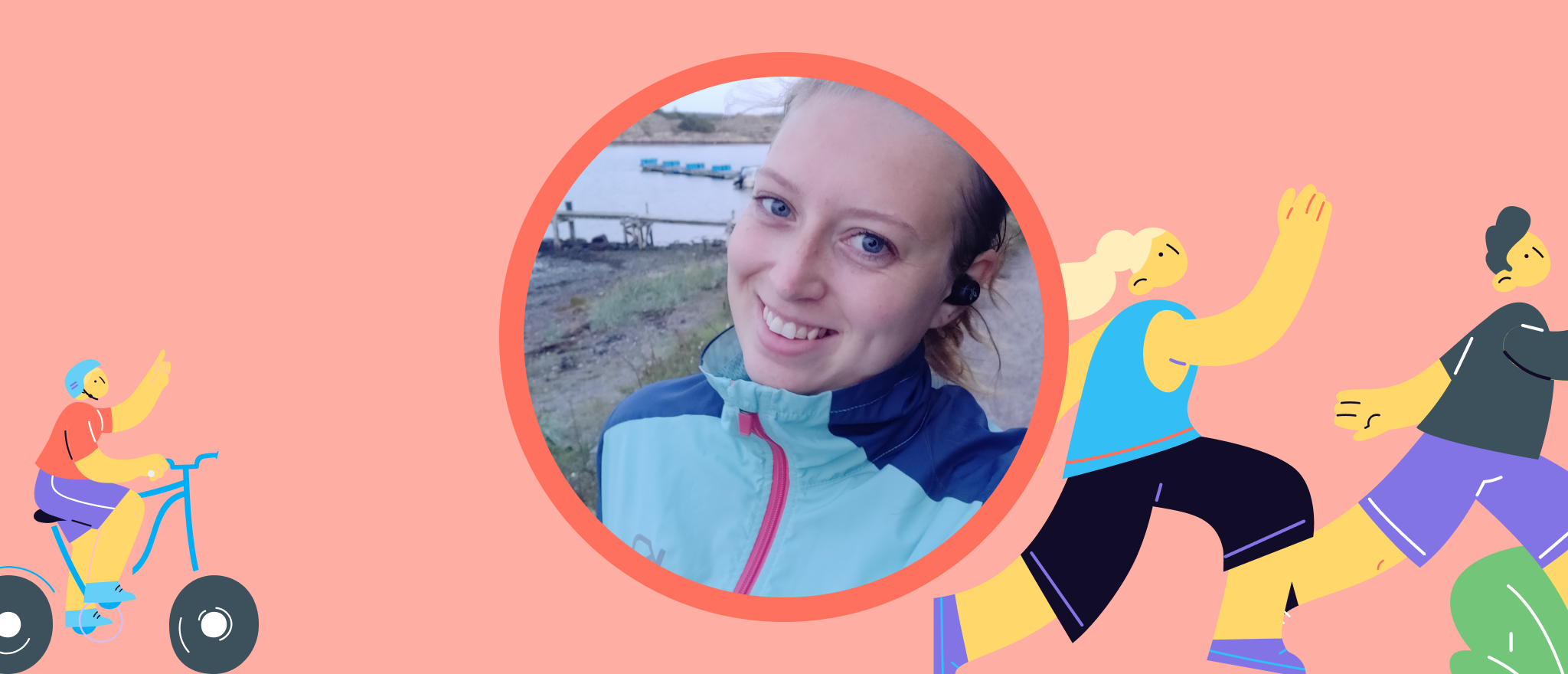“I feel I have found a balance”
Sofia Mickelbo was diagnosed with RA, and decided to do whatever she could to feel better. Her family got into the habit of exercising together and eating more of what their bodies need. But of course, one mustn't forget to have fun too.
Who are you?
My name is Sofia Mickelbo, I’m 28 years old and I live on Kållandsö near Lidköping together with my husband and our four-year-old daughter. I work as a designer and recently got a new job, so right now I have some exciting new challenges. Our life is at full speed with the renovating of our house and everything else connected with family life. We live right by the water and are usually out on the lake in the summer as much as we can. It’s like being in a vacation resort, but full time.
How was it when you got your diagnosis?
I was diagnosed in late 2014 when I was around 22 years old. During that summer I had gastritis, I had worsening pain in my joints and felt every morning that I almost had to roll out of bed. Back then we lived in an apartment with a bedroom upstairs and I remember my husband saying it sounded like an elephant walking down the stairs every morning. I was stiff all over and had so much pain in my feet. I went to the health center and said that this wasn’t right: this is not how it should be. I was sent to the rheumatologist in Skövde. They took samples, squeezed and felt around and told me that I had rheumatoid arthritis (RA).
How did it feel to get the diagnosis?
I thought "well what is this?" I had no idea what the diagnosis meant. My expectations when I went to the rheumatologist were that I would get this little problem sorted out quickly, but I ended up going home with a chronic illness. My head was spinning: what does this mean? What about medication? Will I need to take sick leave? I was sad and in shock. You usually go to a hospital and get cured, I thought. And this would not disappear. It did not sink in at first.
When everything settled down, I felt that better knowing I would get the help I needed. My body responded quickly to the medication: after only 24 hours I was able to get out of bed and felt a lot better.
What’s important to you to help you feel good?
Something that had a very big effect on my well-being, and my whole life in general, was that I started to take more care of myself. My husband and I were both overweight, and we decided on a change. We started exercising and eating more of what makes your body feel good in the long run. Once I had lost some weight, started exercising more and was eating good food, everything felt so much better, both physically and mentally.
We have become a family that is more active together. My daughter will sometimes remind me to exercise because she knows she can climb and crawl over me to act as a weight. I try to make her also have fun while I exercise, so it will be a fun thing for both of us.
We want to be strong and active parents who can keep up with her pace and not inhibit her in any way. I want to give her good habits in the future, so she sees activity is good and encourages everything that is fun. It has made a big difference in our lives and I am really happy and proud of it. I feel I have found a balance. Remembering to enjoy yourself is equally important.

How has family life worked?
My husband and I have been together since we were 15 or 16 years old. Neither of us knew what rheumatoid arthritis (RA) meant when I was diagnosed. He had seen me get sick before the diagnosis, and once I started taking the right medication, he saw how I started becoming more like myself again.
I discussed with my rheumatologist quite early about how you can have children when you have RA. We started planning how I would take my medication and when I would stop. I got pregnant and had a very good pregnancy. Two months before I was due to start working again after my maternity leave, the symptoms started to creep back in and I started taking my medication again.
For the practical things, like carrying my daughter, I have adapted and come up with my own tricks to make things work. I want to manage by myself in most things. Even if I eventually ask for help, I want to try myself first. When we started building the house, we initially planned a single-story house in case I got worse, but then we thought that we can’t plan a life around me being sick.

What would you like to say to someone with rheumatism?
Don’t give up. If your hands are stiff, use your elbows for a while and try to work around the problem. Try to see the positives, even if you are in pain: "I can not do this, but I may be able to do this." Try to find solutions. There will be setbacks and bad days, but try not to stay down too long.
Prioritize yourself and your time. I have been close to giving up, and I needed the tools to help me prioritize myself. Make sure to create space for your own time. Create a structure and find what suits you.
Sit down sometimes and breathe. Such a simple but difficult thing just to relax. I've had to learn that it's okay to do nothing sometimes. It can be difficult to let go of everything for a little while, but it really is OK if you lie down on the floor for a bit!
Dare to be brave. Try to fight, even when it looks dark and you feel depressed. Take a small step: it may feel strange at first, but take it one step at a time.
Let those around you know. Its a battle to keep track of things yourself, so make sure you have people around you who know how your condition works. Allow them to have some control over your blind spots.
Learn to do things right. Keep everything in perspective and practice thinking long-term. That can be difficult, but to make yourself doing just enough sometimes, will help you stay in balance. So don’t be too tough on yourself, and take the time to find what works for you.

